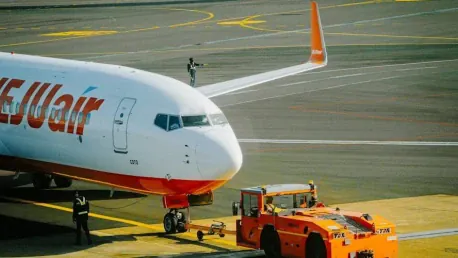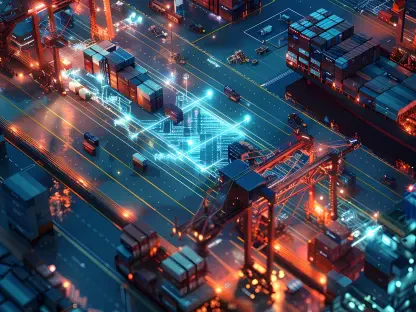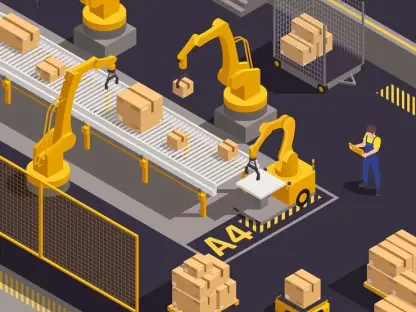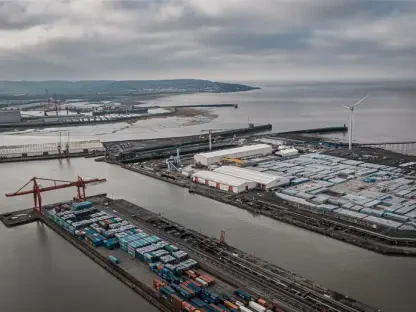The air cargo industry is poised for a significant transformation as it slowly embraces digital technology and modern innovations. Despite significant advancements in other sectors, air cargo logistics have traditionally been slow to adopt digitalization and automation, often relying on manual processes that hinder efficiency and visibility for shippers and customers. This article explores how AI and digitalization have the potential to revolutionize air cargo operations, enhancing efficiency, reducing costs, and supporting sustainability goals. As the industry grapples with the challenges of real-time visibility, the integration of automation, and the potential of AI, the emphasis remains on demonstrating tangible benefits to stakeholders.
The Need for Real-Time Visibility and Data Sharing
One of the primary challenges faced by the air cargo industry is the lack of real-time visibility and data sharing. With customers increasingly demanding precise tracking information for their shipments, it becomes crucial for the industry to adopt technologies capable of providing this data. Traditional systems often fall short, lacking the capability to share comprehensive tracking details such as temperature and exact location. Modern data-sharing methods, like IATA’s ONE Record, aim to bridge this gap by offering extensive and timely information to all stakeholders involved in the supply chain. By adopting these technologies, the air cargo industry can significantly improve operational visibility, ensuring that shippers and customers access the information they need.
Real-time visibility enhances the ability to monitor and manage supply chain disruptions efficiently. For instance, knowing the exact location and condition of cargo allows for prompt intervention in case of delays or temperature breaches, thus safeguarding sensitive goods like pharmaceuticals and perishables. The integration of such advanced data-sharing technologies can also contribute to enhanced customer satisfaction, as accurate and timely information becomes readily available. Moreover, improved transparency in the logistics process builds trust among all stakeholders, promoting a more reliable and efficient air cargo ecosystem.
The Role of Automation in Streamlining Operations
Automation is another crucial aspect of the digital transformation in the air cargo industry. By reducing manual tasks and lowering costs, automation can streamline operations and enhance overall efficiency. Modern technological approaches, including the use of APIs (Application Programming Interfaces) and Microservices, offer a way to integrate innovative solutions more efficiently. These technologies enable ground handlers and airlines to bring new services to market faster, circumventing the limitations imposed by outdated legacy systems. Automation not only improves operational efficiency but also allows the industry to respond more quickly to unforeseen situations, minimizing operational waste and enhancing overall responsiveness.
Implementing automated systems can lead to more precise and efficient handling of cargo, reducing errors and delays caused by manual processes. For example, automated sorting and scanning systems can significantly speed up the handling of parcels, ensuring timely delivery. Additionally, automation can facilitate better resource allocation, improving workforce efficiency by allowing employees to focus on high-priority tasks rather than repetitive, time-consuming activities. Consequently, the air cargo industry can achieve greater operational resilience and adaptability, crucial features in an increasingly competitive market.
AI: The Future of Air Cargo
Artificial Intelligence (AI) is poised to revolutionize the air cargo industry by increasing efficiency and optimizing operations. However, the effectiveness of AI heavily relies on the quality of the data provided. Many stakeholders in the air cargo industry currently operate with outdated infrastructure that must be upgraded to fully leverage AI, machine learning, and other advanced technologies. The adoption of AI is not merely a technological shift but also requires careful change management to address potential resistance from employees who might be hesitant to embrace new systems. By demonstrating tangible benefits and providing a strong business case, the industry can foster a supportive environment for these changes.
AI’s ability to process vast amounts of data in real-time offers tremendous potential for predictive analytics and proactive decision-making. For instance, AI can analyze historical shipment data to forecast demand trends, allowing airlines and logistics providers to optimize their capacities and manage resources more effectively. This predictive capability helps mitigate the risks associated with fluctuations in demand, ensuring more stable and predictable operations. Moreover, advanced AI-driven algorithms can enhance the accuracy of demand forecasting, leading to better capacity planning and improved service reliability.
Practical Applications of AI in Air Cargo
The article provides specific examples of AI applications in the air cargo industry to illustrate its benefits. One notable project is the AI-driven Task Manager for warehouse operations, which orchestrates tasks and assigns workers based on AI calculations. This system aims to enhance efficiency without replacing human labor. Another example is load planning optimization, where AI suggests the best ways to load pallets for maximum efficiency. Additionally, AI assists in the weight and balance system, referred to as the “Autoload feature,” which optimizes the placement of pallets on aircraft, contributing to fuel savings and overall operational efficacy.
These AI-driven solutions present significant advancements in operational efficiency, leading to substantial cost savings and resource optimization. The AI-powered Task Manager optimizes the allocation of human resources, ensuring that tasks are performed by the right personnel at the right time, thus enhancing productivity. Similarly, load planning optimization ensures that cargo is loaded in the most efficient manner, maximizing space utilization and minimizing fuel consumption, thereby reducing the operational costs and environmental impact. The Autoload feature further refines these efficiencies, ultimately contributing to the sustainability goals of the industry.
The Push Towards Digitalization and Modernization
The overarching trend in the air cargo industry is a clear push towards increased digitalization and modernization. This transformation is essential to stay competitive, attract new talent, and offer engaging roles that focus on high-value tasks over repetitive manual labor. Enhancing digital capabilities will also significantly improve the industry’s responsiveness, enabling quicker reactions to unforeseen situations and minimizing operational waste. Early successes in digitalization can help shift mindsets, thereby encouraging broader adoption and investment in new technologies. By providing clearer visibility, optimizing operations through AI, and enhancing responsiveness, the industry aims to improve efficiency, reduce costs, and support sustainability goals.
Digitalization promises to create a more agile and resilient air cargo industry, capable of adapting to market changes and customer demands swiftly. By fostering a culture of innovation and collaboration, the industry can drive continuous improvement and stay ahead of the competition. Furthermore, modern digital tools can empower the workforce by providing them with real-time information and insights, enabling more informed decision-making and proactive problem-solving. As the industry embraces digital transformation, it will be better equipped to meet the evolving needs of customers and stakeholders, ensuring sustained growth and success.
Overcoming Challenges and Demonstrating Benefits
The air cargo industry is on the brink of a major transformation as it gradually starts to embrace digital technology and modern innovations. While other sectors have made significant strides, air cargo logistics have typically been slow to adopt digitalization and automation, relying heavily on manual processes that limit efficiency and visibility for both shippers and customers. This discussion delves into the revolutionary potential of AI and digitalization in air cargo operations. By integrating these technologies, the industry can enhance efficiency, cut costs, and support sustainability efforts. One of the pressing challenges is achieving real-time visibility throughout the supply chain. The industry is now focusing on the practical benefits that automation and AI can deliver to all stakeholders involved. As the air cargo sector evolves, it will be crucial to demonstrate the tangible advantages brought by these technological advancements, making the transition smoother for everyone involved.









